|
|
I remember when I first got into sustainability… one of my first questions was: what do I do with dead batteries? Let’s break down step by step how recycling electronics works.
The world produces up to 50 million tons of e-waste every year. This material is worth an estimated $62.5 billion. And only a small percentage is ever recycled.
Busy? Try the speed read.
The scoop: Electronics produce millions of material waste every year. Here are some simple ways to recycle or repurpose your old gear.
Recycling electronics:
- You can dispose of old batteries, computers, tvs, and phones at major retailers like Home Depot, Best Buy, Lowe’s and Staples. Use a search engine to find one near you.
- Make sure your device is shot before recycling it – you may be able to donate it, sell it online, or trade it in for a new device.
- Always back-up old files and do a factory reset before selling, recycling or donating a device.
Bottom line: Being responsible with e-waste is an easy way to dampen your footprint and help under-served communities at the same time.
Dig deeper ➝ 4 min.
Everyone remembers the seemingly indestructible devices of the 1990s. I swear those N64 and GameCube controllers could survive a nuclear war. Fast forward to today, and a new iPhone will last you two years if you’re lucky. As time moves on, American families are piling up their electronic trash.
If we can’t figure out how to make recycling electronics mainstream, this crisis will only worsen.
What should I do before throwing out a device?
Make sure you back-up any files or data you want to keep. Be thorough- check for photos, videos, songs – anything you can imagine you might want to hold on later. If memory storage is an issue, you can purchase a 1 TB external hard drive for old data.
When you are finished extracting your favorite files, perform a factory reset on the device.
So how do I dispose of dead batteries?
My best piece of advice would be to not throw it in your regular trash can or recycling bin. Save dead batteries over time in a jar or container. When your jar is full, you can take it to several drop off locations that will properly recycle your old batteries.
To find a location near you, visit www.rbrc.org. The website is run by Call2Recycle, an organization that partners with big names like Home Depot to recycle batteries. On their website, they allow you to search for your closest retail locations like Best Buy, Whole Foods, Lowes, Staples, etc. that will take your batteries off your hands.
Earth 911 is another organization that helps you find a close recycling location.
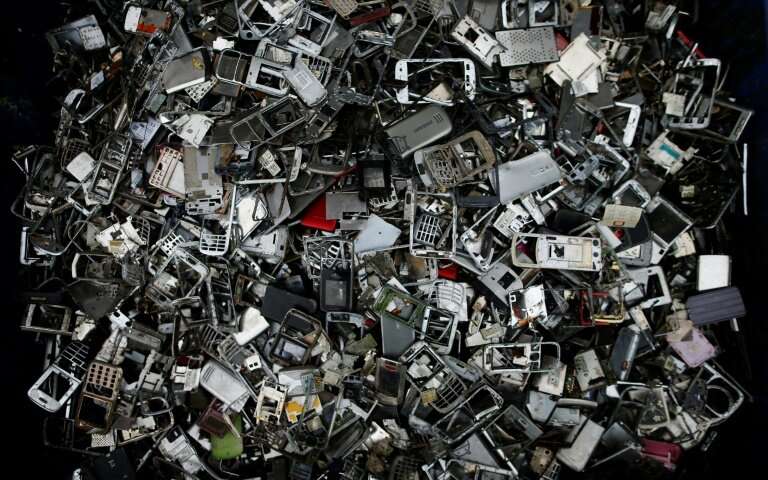
Recycling electronics like an old phone
Compared to other electronics, phones are pretty easy to recycle. Always remember to back-up your data before resetting your device. If you still have a SIM card, remember to remove it.
Call2Recycle accepts all forms of mobile devices and batteries. They are able to make new use of devices for resale or they will recycle the materials to help create a new device.
If your phone isn’t that old, try looking to trade it for a new phone, or sell it for some cash. If it’s really old (like flip phone old), the best thing you can do is recycle it properly.
Check out these mobile apps that can also help you go green.
Here are some other methods you can use:
- Secure the Call partnered with Whole Foods to get special emergency cell phones for senior citizens and domestic violence shelters. Bring a charger!
- Cell Phones for Soldiers helps troops call home for free.
- If you work at a larger company, your employer may have an e-waste program in place.
Recycling electronics like laptops
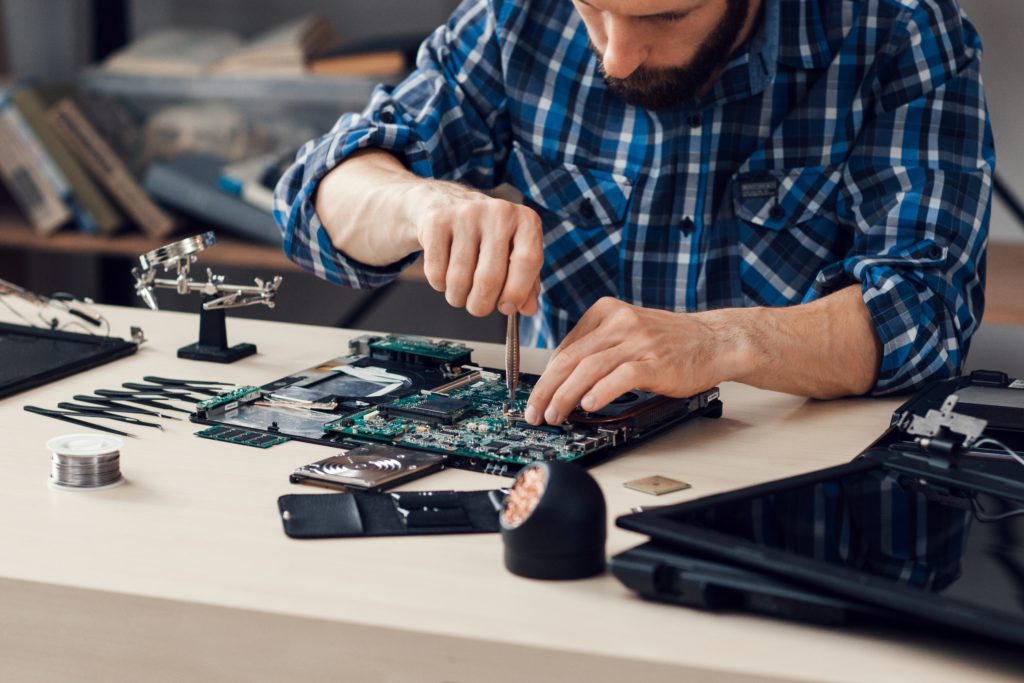
Before tossing an old laptop, consider if someone else can make use of it. For example, I am looking to get rid of my Lenovo ThinkPad, which is about 3-4 years old. It can’t handle a lot of the larger multimedia projects I need to accomplish these days.
But it isn’t completely done yet. It functions well for spreadsheets and basic word docs. So instead of recycling it, I’ll look to sell it for a low amount.
So if your device is bent out of shape, and you just need to dispose of it responsibly, go to Earth911’s website and search “laptop computer”. They will shoot out near locations where you can recycle the old guy.
Before choosing a spot to abandon your old hardware, be aware of the EPA’s list of certified Electronics Recyclers. If they aren’t on the list, it may not be the best place to leave your gadget.
Dell also has a Goodwill Reconnect Program you can also use for banged-up e-gear.
One more thing: Just remember to bring as many accessories as you can. That means keyboard, mouse, monitor, etc. Keep in mind if your old device is somewhat pricey, you can use that donation as a tax break.
The often overlooked: wires and chargers
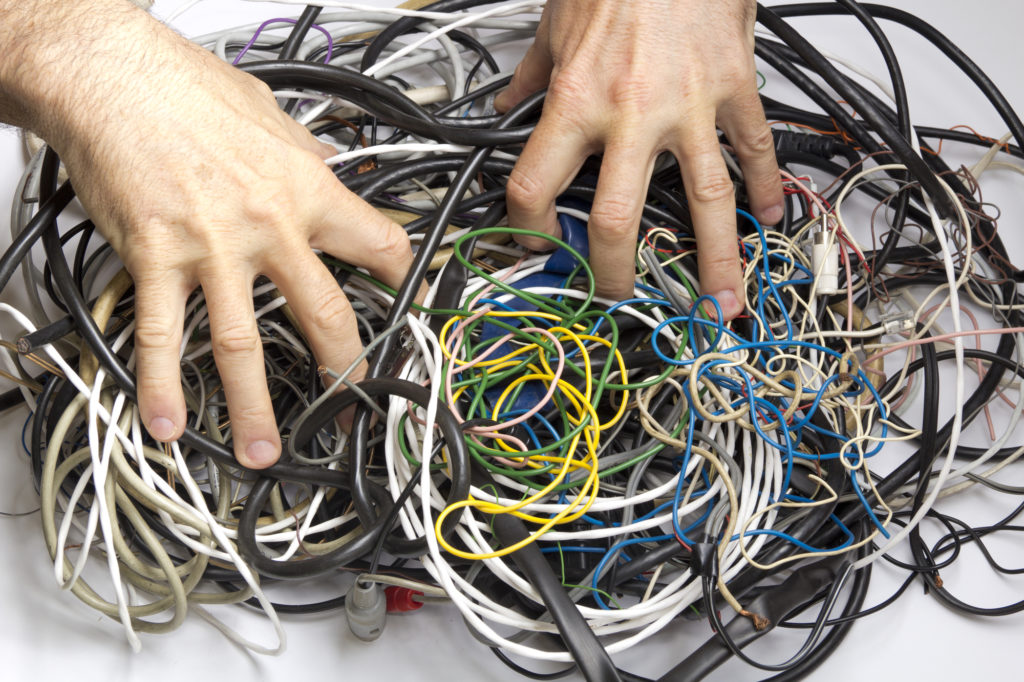
I have so many wires in my basement. I never really thought about the possibility of repurposing them or donating it. Why do I feel like we all have a basket full of Ethernet cables somewhere in our house?
You can drop off used cables at a retailer like BestBuy. You can check out Capital Scrap Metal to see if your stuff retained any market value.
If not, look into local STEM programs that may be short on funding. In many cases, they would be happy to take old equipment. Maybe even ask your local school district.
Don’t forget your cameras
In the age of the camera phone, it is hard to remember the days when cameras and communication were entirely separate. As I type this article, I can see an old JVC Camcorder in my peripheral.
Check out one of the above mentioned retailers to hand in your old camera.
Recycling electronics like TVs
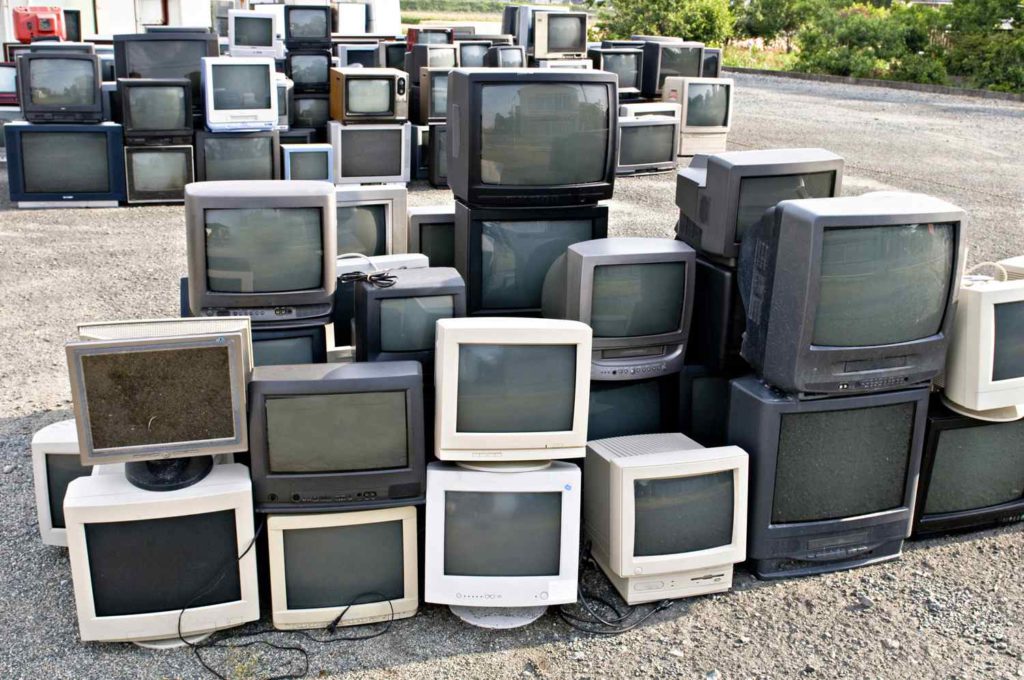
Similar to the iPhone, TV’s were built to last. I still remember when my dad bought a 50 inch plasma screen TV in the early 2000’s for thousands of dollars. It was a huge deal. Now, that TV is probably worth a few hundred.
Every year, smart TV’s are replacing old ones. If you’re set still works, consider a platform like Facebook Marketplace or OfferUp to get some cash. If your TV set is shot, search up some local recycling or donation centers that would be willing to take your larger gear.
Keep in mind that smart TVs may carry some personal information, in which case you must reset your device to factory settings before giving it away or selling it. As always, bring any and all accessories like remotes and cables along with your TV to make the most of the trip.
Why is e-waste so important?
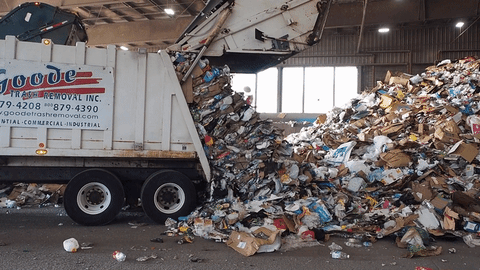
When batteries, phones, tvs, radios, computers end up in a landfill, they can leak toxic materials like lead, flame retardants and chromium.
E-waste and recycling electronics is especially important when you consider how many people in the world could use a device that’s even a few years old. Coupling the environmental damage with social cause really puts things into perspective.
By repurposing your electronics, you not only can prevent harmful materials from ending up in the atmosphere, or in freshwater, you can also ensure that someone in an underserved community can get access to the Internet in a more efficient, purposeful way.
Some updates thanks to my friends @ reddit:
- Around Earth Day, if not other times, Best Buy always has a trade-in program or will take devices for free. Sometimes, they will make you pay to accept a device.
- Disposing of old single-use batteries differs from disposing of rechargeable batteries. Most Best Buys/Home Depots/etc. only take rechargeable batteries.
- Q: Do you also happen to know what happens to batteries and electronics that are disposed of at major retailers and recycling programs? I’ve heard old electronics sometimes get sold to low-resource settings where they are mined for scrap metal, which can create dependence and cause issues in the local communities. Do you know if this is true or have more info you could share?
- A: The best thing would be to repurpose functional electronics by selling/trading/donating to someone who could use it. For total junk, it gets a little trickier. This is true for the recycling business as a whole, electronics are no exception. If you’d like, ask an employee directly what their company does with e-waste/what partner they use and it may point you in the right direction to decide whether it’s worth it or not.













No Comments